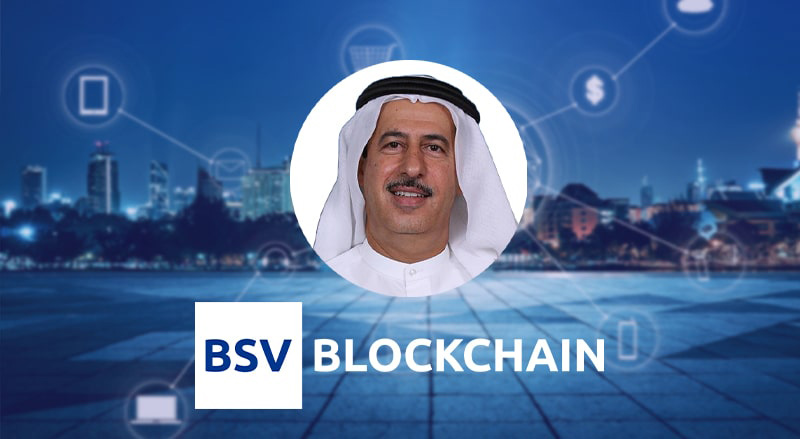Certified qualifications, whether they are university degrees, college diplomas or school graduation certificates, are crucial data to businesses around the world, allowing them to determine whether a job applicant is the right candidate for the position and is qualified to complete the work they will be required to do.
However, not all certifications are equal or even valid. There is a global problem around the proliferation of fake degrees and qualifications issued by unauthorised universities, and the current systems to combat this are both inefficient and incomplete.
Many businesses attempt to solve this problem by requiring attestation of a candidate’s certification – they request a communication from the applicant’s university or college which confirms they attended and graduated there as they claim. This is not an ideal solution, as it incurs additional costs and is impossible to provide in the case of the university records no longer existing.
In Dubai, leading UAE systems integrator Smartworld has developed a far better solution to this problem – using a blockchain’s digital ledger to record verified credentials. This allows candidates to easily provide proof of their degree’s legitimacy, even if the university which supplied it is no longer operating.
Smartworld has implemented this degree using Shahada, its own SaaS blockchain platform, but there are multiple ways to deliver this degree attestation solution, including using a public blockchain like BSV.
The BSV blockchain delivers a publicly auditable ledger of immutable data transactions and is capable of scaling unbounded, making it the only public blockchain that can meet the needs of government- and enterprise-scale applications. BSV is already being considered for the storage of certified education credentials through a partnership between the BSV blockchain’s Switzerland-based association and the University of Sharjah.
This partnership sees both entities working together to build a framework for validating and authenticating academic and professional certifications by leveraging the benefits of a public blockchain, after which a proof-of-concept application will be developed and launched on the public BSV blockchain.
To find out more about the problem of degree attestation and how Smartworld is solving this using a blockchain solution, we spoke to the company’s CEO, Abdulqader Obaid Ali.
Solving fake certificates and attestation
Obaid Ali explains that when it comes to degree attestation and detecting fraudulent qualifications, there are two major problems they aim to solve using blockchain technology at Smartworld.
‘Smartworld overall provides digital solutions, and one of those solutions is the blockchain. Blockchain is a solution to very rooted problems we have today,’ Obaid Ali states.
‘Today, we have two major problems. The first one is that there are a lot of drive-thru universities who publish a lot of certificates, and unfortunately, some of those who use those certificates get into jobs where they are not very much qualified.’
‘Further, there is one thing which is a global problem, not only locally to the UAE, and it is the attestation of a degree, to ensure the authenticity of where it came from and that the content is there. We saw the blockchain as a solution to this problem when we looked into it and further, we aligned this solution with the vision of our leadership in the UAE,’ he says.
The UAE and the city of Dubai have an ambitious blockchain innovation strategy which sees the government embracing different blockchain-based solutions across the public sector to accelerate digital transformation, which means Smartworld has been able to quickly roll out its blockchain-based degree verification solution.
‘Imagine somebody graduated 40 years ago and somebody is now asking them to please give them the attestation from that university – how is he or she able to do that if there is that university no longer exists?’
‘We saw that as an added value and in line with his vision, Sheikh Mohammed bin Rashid, the vice president, prime minister and ruler of Dubai, he saw that we need to try and to make sure that every citizen living in the UAE must have their education credentials stored within their wallet,’ Obaid Ali says.
‘So, with this technology, we were able to not just talk about it, but implement it.’
Smartworld’s blockchain-based verified education credential system has been implemented both at the Higher Colleges of Technology and the University of Dubai, using on-premise and cloud implementations, respectively.
The advantages of degrees on the blockchain
Obaid Ali explains that by storing verified credentials on a blockchain, the attestation process is made redundant, a great advantage for employees, and the incidence of fraud is eliminated. This solution can also be used to record credentials from primary and secondary school through to tertiary education, ensuring that a student’s qualifications are never lost and can always be verified.
‘When you graduate, you have that degree instantly. Further, when you go and work, you can present that certificate instantly. Therefore, getting into a job is much faster and one thing you can be sure that once it is in the blockchain, it is secure. There is no need for attestation,’ he says.
‘I don’t know if you have your first-grade certificate, maybe you will have to ask your parents. But for some people, they would collect that, so you can imagine the ecosystem is that you start from first grade. As you go through from grade 1 to grade 12, because that’s the system as of now, all your certificates are collected in a wallet.’
‘Then, when you go to college, not only you get your degree but every semester’s grades are going to be kept in your wallet when you graduate,’ he adds. To find out more about how storing verified certifications on the blockchain is quickly becoming a reality, read about the work the BSV Blockchain Association is doing with the University of Sharjah to store credentials on the BSV public blockchain in the UAE.
